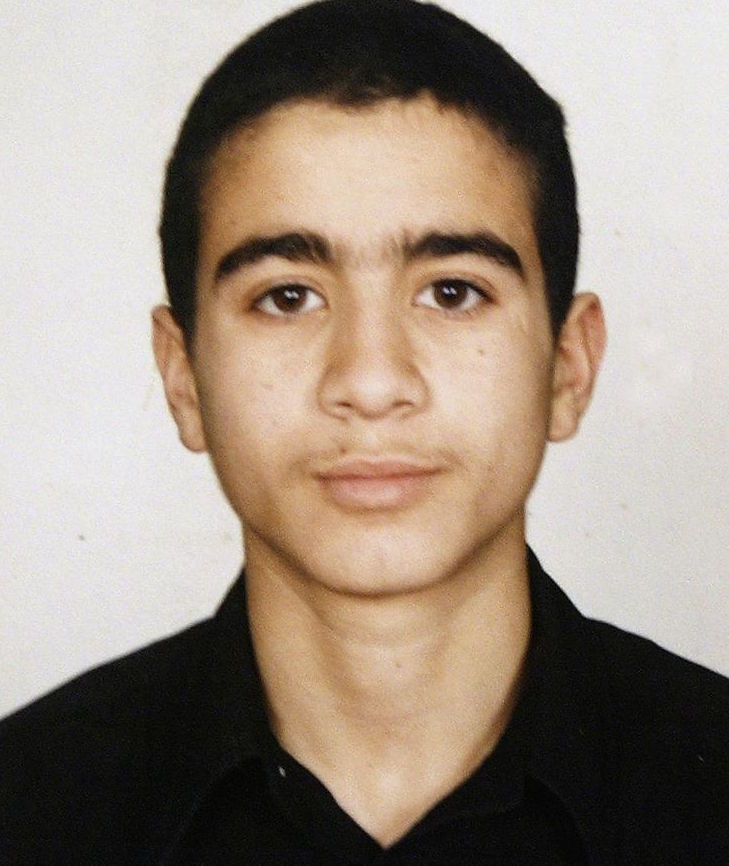A few years ago when some Canadian Muslim men, accused of terrorism, challenged the Canadian government through the courts to ask for their legal rights, voices within the intelligence community rose up and insinuated that these men were waging “judicial jihad.”
When the federal government appealed the Alberta Court of Queen’s Bench decision to grant the release of Omar Khadr, another Canadian Muslim man who spent over ten years in Guantanamo prison for being a child soldier, none of these same voices would rise up and accuse the government of “judicial vengeance” — despite the fact that the Canadian government has been using taxpayers’ money to wage one legal battle after another to defend the indefensible: the torture and the indefinite detention of a Canadian citizen.
In one of its decisions concerning Omar Khadr, the Supreme Court of Canada ruled that Omar’s rights were violated by Canadian interrogation in Guantanamo. Still, this ruling didn’t make him welcome in Canada.
The Canadian government is using the fear of a former Guantanamo detainee and the untold story of Omar to please its Conservative base and to send its usual strong message of “law and order.” Omar Khadr became a weapon in the Conservatives’ hands to show how “serious” and how “committed” they can be in “cleaning” the Canadian landscape from “bad” guys like Omar.
But the Canadian courts aren’t hearing the same story this government has been repeating through its successive public safety ministers. Indeed, Omar Khadr has been described by his Canadian guard as a “model prisoner” and by one American guard as “salvageable” and “a good kid.” What will happen to public opinion if Omar Khadr tells his own version of his story?
Stephen Harper burned all his cards with respect to Omar’s case: terrorism, family record, criminality, U.S. military tribunals. Harper’s Conservatives called Omar a convicted dangerous criminal and a manipulative individual. They alleged that his release would threaten the bilateral relationship with the U.S. even though the U.S. stated that this won’t be the case. Actually, the Canadian judge who ordered his release declared that Omar would have a strong chance of success in U.S. courts, which have overturned similar cases. But the Canadian government continues its legal vendetta and now claims that by releasing Omar “abruptly,” it will set a legal precedent even when everyone knows that there are not thousands of cases similar to Omar’s.
A few days ago, Albertans punished Premier Jim Prentice, a former federal minister under Stephen Harper, by electing a majority NDP provincial government. If this political result had only one explanation, it would be that Canadians are looking for change. People are fed up with a government that has lost all of its cards, including the economic one.
Yesterday, an Alberta court rejected the federal appeal of Omar Khadr’s release. Alberta, the same province that elected Stephen Harper, rejected the vengeance that seems to have been motivating this government and its persistence in keeping Omar locked up by all means. You have to be really unconscious to have these two decisions come out and still think that nothing really happened.
The positive decision in the case of Omar Khadr seems to fit into this new environment of people wanting change, and refusing to be stuck in old battles and old thoughts. Stephen Harper and his government seem to be the only ones looking backward. They don’t realize the incoming tsunami could well wipe them out.
Monia Mazigh was born and raised in Tunisia and immigrated to Canada in 1991. Mazigh was catapulted onto the public stage in 2002 when her husband, Maher Arar, was deported to Syria where he was tortured and held without charge for over a year. She campaigned tirelessly for his release. Mazigh holds a PhD in finance from McGill University. In 2008, she published a memoir, Hope and Despair, about her pursuit of justice, and recently, a novel about Muslim women, Mirrors and Mirages. You can follow her on Twitter @MoniaMazigh or on her blog www.moniamazigh.com




